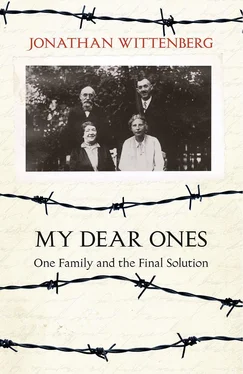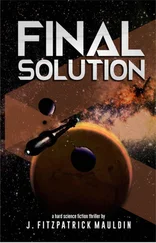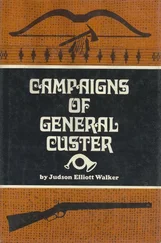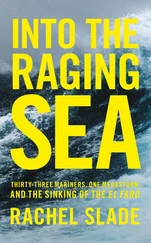By then I understood his family better. I had stayed many times with his sisters Hella and Steffi in Jerusalem. There had been a third sister too, Eva, who had died very young, during the war. ‘She had leukaemia. The doctor said, “She needs red wine and chicken.” We can afford them now, but at that time in Palestine we had no money for such things. Who did?’ I’m not sure my father ever showed me her picture. But she was more important to him than the paucity of his references suggested and in his final illness he would often call out, ‘Eva, Eva, help me,’ raising his arms and stretching out his bent hands as if his long-dead sister would reach down and raise him from his sickbed. It struck me as I listened to his semi-conscious pleading that the two of them must have been closer companions in those impoverished years in Palestine than he had previously allowed anyone to perceive.
I learnt equally little from my father about his grandmother Regina. From time to time he would refer to the famous rabbinic lineage to which the Freimann side of the family belonged. Regina had been married to the distinguished rabbi Jacob Freimann, of whom I had sometimes heard my father speak with deep respect and quiet pride. But that was virtually all I knew.
My father’s reticence may also have been due to the complex geography of his life. From Breslau, then part of German Silesia, he had fled with his parents and sisters to Palestine when he was only sixteen; from there he had gone in 1955 to Glasgow with my mother, Lore, three years after their marriage and, after her death at the age of only forty-four, had moved with my brother and me to London in 1963, where he married Isca, Lore’s younger sister, who now became my second mother. It took me a long time to realise how many losses had ruptured his life.
I find it hard, too, to understand my own ill-timed curiosity. Why had I asked him so little about his relatives, and why was I so full of questions now, when he was no longer there? Or maybe my need to explore the destiny of my father’s family was part of my own mourning, both a tribute to him and an attempt at the impossible task of forming some kind of tally of what was lost. Or maybe there are questions that cannot be framed, not, at least, until long afterwards. ‘Many people come to see me with their enquiries,’ the German holocaust historian Goetz Aly told me. ‘They almost all have one thing in common; they’re over fifty, mostly over sixty, and those from whom they could once have enquired are dead.’
I was there in Jerusalem when Steffi died. The youngest of the four siblings, she’d been just ten when the family fled in 1937. She’d fallen in love at once with the new life in the developing Jewish homeland with its vital spirit, enthusiastic youthfulness and warm outdoors culture. She’d trained as a nurse and worked in Cyprus with the thousands of refugees held there by the British. Hoping to put the horrors of Nazi Europe behind them, they set sail from ports on the Black Sea or the Mediterranean, illegal immigrants on overcrowded boats, desperate to reach the shores of Palestine and begin fresh lives in the incipient Jewish state. Some made it safely to the new homeland; some drowned in sight of ports which offered them no anchorage; some were intercepted by the Royal Navy and interned. ‘Whenever she was home for the weekend they’d come for her passport and use it to smuggle in new immigrants,’ my father recalled; ‘she’d have it back the following day.’ Later she served for years in a small clinic in the Old City of Jerusalem. ‘The first nurse in the Jewish Quarter’, read the simple inscription Michal, my one and only cousin, later chose for her tombstone.
It was a burning June day when we buried her in the ancient Jewish cemetery high on the Mount of Olives overlooking the city she had loved. Few friends joined the small cortège of cabs which followed the hearse; this was East Jerusalem and the steep, narrow lanes bounded by high stone walls could not be considered completely safe. It would have been more convenient to have arranged the funeral elsewhere, but it felt appropriate to lay Steffi to rest in the same cemetery where Eva had been buried back in the Mandate days, before the State of Israel had been declared in 1948 and the city riven in two by the War of Independence. Remarkably, a space had been found where the two women could lie not quite next to each other but at least head to foot, and resume after sixty long and battle-ridden years their sisterly companionship in their final resting places.
After the grave had been filled with dust-dry soil and the memorial rites completed, I went for the first time to visit Eva about whose early death my father had so rarely spoken. I read the words on her gravestone:
Our precious daughter and sister
Chava Elka Wittenberg
daughter of Raphael z’l,
born on the 18th of the month of Menachem Av, 5682 (1922)
and taken in the midst of her days
on the 22nd of the month of Tammuz 5704 (1944)
This was puzzling. The letters ‘z’l’ stood for zichrono liverachah (‘may his memory be for a blessing’). Eva’s father Raphael, my grandfather, must therefore have been dead when these lines were composed. Yet he only passed away in 1954, ten years after Eva, a time in which those extra letters could scarcely have been added since the Mount of Olives was under Jordanian rule from 1948 until 1967 and Jews were allowed no access, even to the cemeteries. The inscription continued:
Granddaughter of the great Rabbi Jacob,
son of Rabbi Avraham Chaim Freimann,
who was born on the 21st of the month of Tishrei 5627 (1866)
and died on the 19th of the month of Tevet 5698 (1937)
and of Rebbetzin Rachel, daughter of Rabbi Yisrael Meir,
who was born on the 1st of the month of Shevat 5629 (1869)
and killed in the Holocaust for the sanctification of God’s name,
in the month of Shevat 5704 (1944),
may God avenge her blood.
May their souls be bound up in the bond of life.
‘For the sanctification of God’s name’ was the traditional phrase with which those killed for their faith were honoured. The objection that the Nazis persecuted the Jews not on account of their beliefs but simply due to their Jewish blood could not be raised here: my great-grandmother had perished not just because of, but deeply immersed in, her faith. As for the words ‘May God avenge her blood’, they had been found scrawled in blood itself on the insides of cells and on the stony surfaces of fortresses where Jews had been shot, kicked or bludgeoned to death.
I walked slowly through the rows of graves to the wall at the edge of the ancient terrace, looking out over the Temple Mount and the city beyond. When did the family first learn of my great-grandmother’s fate? I remembered how my father had shown me a copy of the postcard she sent from Theresienstadt late in 1943, at the Nazis’ behest of course, explaining to her family that all was well and that conditions in the town were perfectly satisfactory. But when did they know for certain that she had been murdered? It could not yet have been in that summer of 1944 when her granddaughter was laid to rest. The brutal facts of the Final Solution were not then understood in their entirety and the family wouldn’t have relinquished prematurely the hope, however improbable, that they might yet hear when the war was over from der lieben Mama, their beloved mother, and that somehow she might have managed to survive.
It struck me then that years later, sometime after 1967 when the Mount of Olives was once more a part of Israel and she could again visit her daughter’s grave, my grandmother must have chosen to commemorate her parents and her husband here, where her precious child already lay, bringing together in death all her loved ones who were prevented by visas, quotas, and decisions the ill-fated nature of which would only be revealed with hindsight, from ever meeting again while they were still alive. Her thoughts would have taken her not only to the memory of her beloved daughter, but of her whole family as once it had been, her father, mother, sisters and an entire world destroyed.
Читать дальше












